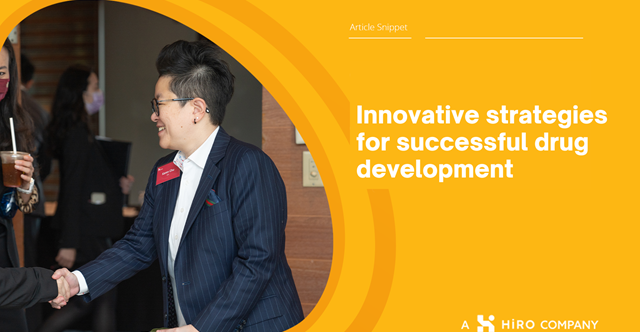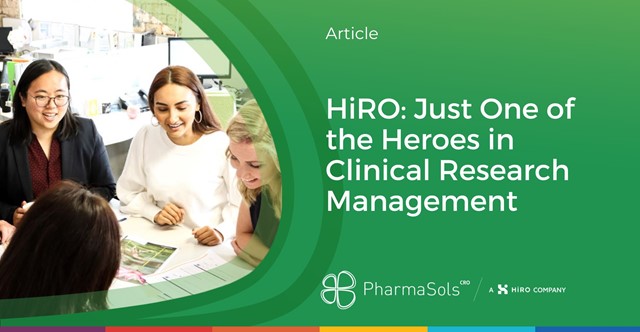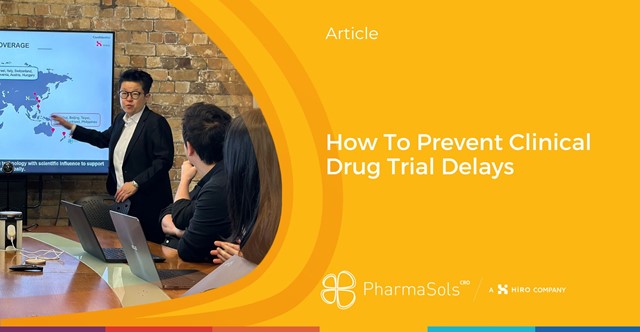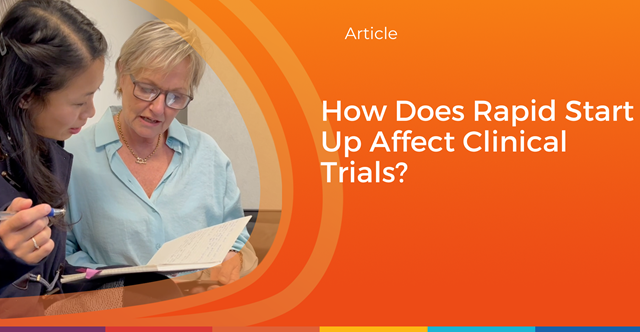11 May
Innovative Strategies For Successful Drug Development

Innovative strategies for successful drug development
- global pharma urgently needs product differentiation, accelerated pathways and better support
We are living in an extraordinary time of scientific innovation, where our understanding of biology is exploding and our ability to improve human health is unprecedented with new opportunities to develop new innovative medicines and devices.
However, the pharma industry faces a growing problem: the return on investment (ROI) is declining. Drug development costs and timelines continue to rise, and the likelihood of success continues to fall. The top 20 pharmaceutical companies spend ~$60 billion on drug development each year, and the estimated average cost of bringing a drug to market (including drug failures) is now $2.6 billion—a 140 % increase in the past ten years. (1) Fundamental changes are needed in how pharma companies make decisions to alter the economics of development investment, support drug development outcomes and accelerate pathways.
Pharma leaders cannot fix the problem by just adding products to pipeline. Selecting the right product to invest in and develop it right is vital. When the choice isn’t obvious, pharma companies need product differentiation to compete in crowded markets.
The “era of differentiation” is here to market innovative and differentiated product, globally across-geographies, first and best in class drugs, locally developed drugs, in-licensed or co-developed.
How do we focus on product differentiation? (2)
- Raise the bar: The traditional approach requires having a product that is significantly more effective.
- Precision Medicine: If your product can’t be the best for all patients, be the best for some patients.
- Solve a different problem: When efficacy is undifferentiated, consider differentiating on emerging value drivers, such as tolerability or convenience/administration form or nanotherapeutics.
- Build a different yardstick: Build a clinical story around endpoints that are more aligned with customer needs than the competition (patient needs, health system needs, etc..).
https://www.zs.com/insights/the-growing-challenge-of-product-differentiation
Accelerated Pathways are essential to drive down R&D costs
A focus on product differentiation and innovative strategies from discovery through to clinical trial execution is essential to shorten the whole clinical research process and bring new drugs from lab to patient faster, in a more cost-effective way.
At recent Bio-Partnering Event in Hangzhou March 23 - HiRO CMO, Dr. Cristina Chang noted the pharma industry’s acceptance that the “time for product differentiation has arrived” .
“To address the New Drug Development hurdles, biopharma companies should ask the right questions and seek the right partners. Build data-driven answers at every stage of drug development and commercialization. What unmet needs exist today, and what are the opportunities for commercial success? How will a treatment fit into the existing competitive landscape? How do payers manage existing products in this therapeutic area? What considerations affect outsourcing and market access decisions? How does clinical trials data/outcomes affect physician prescribing patterns and patients benefit/compliance to treatment for long and optimized drug use? “ - Dr. Chang HIRO CMO.
Dr Chang shared HiRO’s innovative strategies for new drug development (NDD) for success:
- Plan early and make effective decisions together with experts in the field.
Plan for data generation and publication at every stage of development.
The better your data, the more your trial will be published, the faster your IND and NDA will be accepted and the more the scientific community with support your innovative medicine.
- Select Global solutions, broaden your horizons with more countries in consideration when looking to where to conduct trials. Cost focus is now shifting to a “time focus” where the industry considers a cost-effective approach, understanding that every day in the commercialization pathway represents loss of revenue.
- Adapt and adjust with experts back-end services
- Select a strategic CRO partner early from the beginning of the commercialization pathway. Biotechs often do not have sufficient in-house expertise and the right research partner is vital to ensure the successful outcomes and save hiring costs.
Planning is the most critical step in commercialization and biotech needs better early decision-making support
- Pre-clinical Investment
Start-ups and early-stage companies will continue to face limited access to capital, inflation, talent recruitment and retention issues. Identify unmet needs and prioritize your pipeline, reduce investment risk, consider in-house and outsourcing gaps.
- Trial Design - improve clinical trial design and recruitment
Sponsors should have the right data and insights to identify potential issues with trial recruitment earlier, solve early issues, finding ways to improve recruitment efforts or locate the right subset of patients for excellent data. Consider Patient Centric Recruitment models and future AI/MI capabilities to shorten timelines and pathways.
- Commercialization
Plan for the commercial stage. Can real world data (RWD) be used to support payers to make more favorable drug coverage decisions, or to support efforts toward a future label extension or boost physicians drug usage. What is the best global strategy?
Biotech needs better support to understand how new innovations help alleviate traditional and emerging industry pain points.
With the industry capabilities continuously expanding, global pharma and biotech struggle to keep pace with the latest best-in practice solutions and how to incorporate these new innovations into their own research pathways. Recent development in AI and patient centricity are good examples where the research industry needs to develop and integrate new capabilities into clinical research and trial design.
With recent AI/MI developments, it is anticipated that AI/Deep Neural Network and Machine Learning will be incorporated from the discovery phase of research and embedded in the course of clinical trials execution to shorten the process and bring drugs faster and in a more cost-efficient way.
- AI/MI will help us shorten the time from target identification to phase 1 stage, from 3-4 years to <1 year; and the clinical stage to next-generation compounds are expected to shorten too.
https://www.pharmaexcipients.com/wp-content/uploads/2023/01/The-next-generation-of-evidence-based.pdf
- Patient centricity clinical trial models continue to grow support but still very few trials are designed with the patient at the center of the trial.
Nature Medicine | Volume 29 | January 2023 | 49–58 A special call to be patient centric for success.
About HiRO
Responding to the emerging needs of the global pharma and biotech industry HiRO is an innovative Clinical Research Organisation (CRO) that provides clients with a full range of solutions and services to accelerate the commercialization of new innovative products from the lab to the market. HiRO’s mission is to help pharma and biotech simplify the clinical research process.
CEO Karen Chu - “ HiRO strives to solve problems faced by biotech companies and is driven to work more collaboratively with clients to offer a more customized solution to accelerate and deliver cost-effective solutions.”
With over 20 years of industry experience, the HiRO team comprises of people with the right skills, attitude, scientific, operational, and academic knowledge to better support global biotech’s needs.
CEO Karen Chu - “ The HIRO team deeply understands each local regions clinical trial landscape. Relationships and networks are important – it is essential to work with good people. Our global networks and partnerships support biotech to save R&D time and money.”
Learn how HiRO can better support your commercialization pathway to accelerate R&D. Contact our global team.
References
1 Innovation in the pharmaceutical industy: New estimates of R&D Costs, “Journal of Health Economics, May 2016, Volumer 47, pp.20-33, sciencedirect.com
2 https://www.zs.com/insights/the-growing-challenge-of-product-differentiation
Other News
March 2024 (1)
February 2024 (1)
December 2023 (1)
November 2023 (1)
October 2023 (1)
September 2023 (2)
August 2023 (1)
July 2023 (1)
June 2023 (2)
May 2023 (3)
April 2023 (1)
March 2023 (2)
The Go-to region for clinical trials (1)
HiRO – our global advantage, tailored solutions and key partnerships (1) (1)
HiRO – an emerging full-service global CRO (1)
HiRO – Top CRO in APAC 2022 (1) (1)
November 2022 (1)
October 2022 (1)
September 2022 (1)
August 2022 (1)
July 2022 (1)
June 2022 (1)
May 2022 (1)
April 2022 (1)
March 2022 (1)
January 2022 (1)
December 2021 (1)
November 2021 (1)
October 2021 (2)
September 2021 (2)
August 2021 (3)
July 2021 (3)
June 2021 (2)
May 2021 (1)
April 2021 (2)
March 2021 (1)
February 2021 (1)
December 2020 (5)
November 2020 (1)
October 2020 (5)
September 2020 (1)
August 2020 (2)
May 2020 (5)
January 2024 (0)



